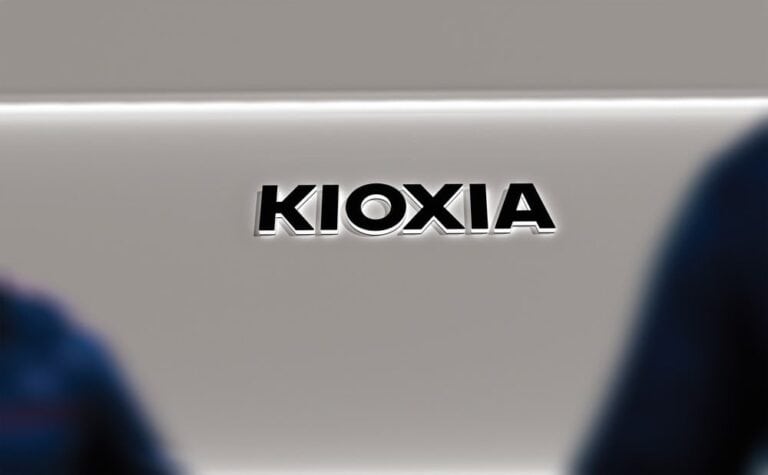Kioxia shares fell 23 percent in Tokyo on Friday after its outlook for the current quarter fell short of analysts’ expectations. The decline comes at a time when international tech funds are under pressure due to growing concerns about excessive valuations in the sector.
The news was reported by Bloomberg. Kioxia, a supplier of NAND memory and manufacturer for Apple, among others, expects operating income of between 229.82 billion and 269.82 billion yen for the first nine months of the fiscal year. This amounts to 1.29 to 1.51 billion euros. Based on this estimate, the company appears unlikely to meet the average analyst forecast for the full year.
In the third quarter of the fiscal year, Kioxia achieved an 11 percent increase in operating profit, the first growth in three quarters after a long period of weak demand for NAND storage chips. Despite this improvement, a significant price correction followed, the largest since the IPO at the end of last year. For 2025 as a whole, the share price is still more than five times higher than at the beginning of the year, mainly thanks to the earlier strong interest in AI-related hardware.
Demand for NAND remains higher than supply
CEO Nobuo Hayasaka said that, according to Kioxia, demand for NAND memory will continue to outpace supply until at least 2026. This is mainly due to the enormous need for fast SSDs in data centers that are used intensively for AI training. The PC market, which had been losing ground for years, is also showing signs of recovery. Demand for smart devices is also picking up.
However, the company faced temporary production cuts due to technological upgrades in its factories, which may have contributed to the disappointing outlook.
Kioxia was not the only company to experience falling share prices. Other major memory chip manufacturers, including Samsung Electronics and SK Hynix, also saw their shares decline. The decline is part of a broader correction in the technology sector, driven by doubts about the sustainability of the rapid rise in value of AI-related companies.
At the end of October, Kioxia and SanDisk announced the start of production at their new factory at the Kitakami site in Iwate, Japan. The factory is equipped to produce eighth-generation, 218-layer 3D flash memory technology, targeting the explosive growth in demand for storage for AI applications.
